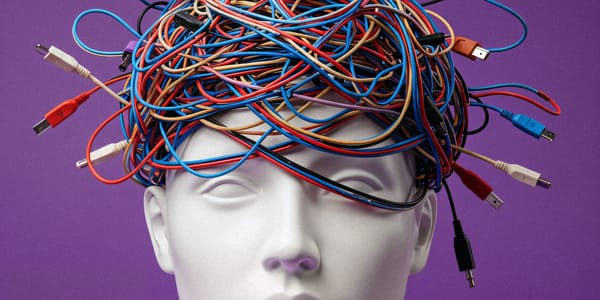AI Transcription for Therapists in Canada: Complete 2025 Provincial Regulation Guide
Discover how Canadian mental health therapists can legally use AI transcription software. Complete provincial guide covering PIPEDA compliance, consent requirements, and regulatory standards across all provinces and territories.

Picture this: You just finished an intense therapy session. Your client made several breakthroughs. Now you face 30 minutes of documentation. What if AI could handle the transcription while you focus on what matters most, helping people heal?
That's the promise of AI transcription software. But can Canadian therapists legally use these tools? The answer varies dramatically depending on where you practise.
The Current State of AI Transcription in Canadian Mental Health
Right now, most Canadian provinces lack specific rules for AI transcription in therapy. Only Quebec has comprehensive guidelines. Ontario offers limited direction. The other eight provinces? They're silent on the issue.
This creates a challenging situation. You want to use technology that saves time and improves care. But you also need to protect client privacy and follow professional standards.
The good news? Several AI transcription tools now meet Canadian privacy requirements. Companies like Heidi Health, Scribeberry, and JotPsych designed their platforms specifically for Canadian healthcare providers. They store data in Canada, use end-to-end encryption, and comply with PIPEDA (Personal Information Protection and Electronic Documents Act).
Understanding Federal Privacy Requirements
PIPEDA sets the baseline for privacy protection across Canada. It applies directly in provinces without their own privacy laws. That includes Saskatchewan, Manitoba, and all three territories.
Here's what PIPEDA requires for AI transcription:
You need clear, informed consent from clients. They must understand exactly how AI will process their information. You can't use the data for anything beyond what you told them. And you must protect it with appropriate security measures.
Health Canada added another layer in 2025. Their new guidance on machine learning medical devices creates standards for AI systems. These include risk assessments, quality controls, and ongoing monitoring requirements.
The Canadian Medical Protective Association (CMPA) makes one thing crystal clear. You remain responsible for all clinical decisions, even when AI helps create the documentation. The technology assists. It doesn't replace your professional judgment.
Provincial Breakdown: Where You Can Use AI Transcription
Quebec Leads the Way
Quebec stands alone with comprehensive AI guidance for mental health professionals. The Ordre des psychologues du Québec released detailed policies in September 2025.
Their requirements are straightforward. You need written consent before recording any session. Clients must understand how AI will use their data. You must verify you're competent to use the specific AI system. And you remain fully responsible for all AI-generated notes.
Interestingly, Quebec also launched a government-funded pilot program. It provides up to 2,000 AI transcription licenses for healthcare professionals through Canada Health Infoway. This represents the most structured approach to AI adoption in the country.
Ontario Provides Some Direction
Ontario updated its professional standards in 2024 with explicit AI language. The College of Psychologists and Behaviour Analysts states that AI cannot replace professional knowledge, skill, and judgment.
You must maintain current knowledge about any AI tools you use. Clients need to understand the risks of technological errors. And you must verify that your technology providers follow proper security practices.
Ontario also requires Personal Health Information Protection Act (PHIPA) compliance. This means stronger protections than PIPEDA alone. Your AI transcription vendor must sign appropriate agreements and maintain Ontario-specific security standards.
Alberta Faces Uncertainty
Despite being Canada's tech-forward province, Alberta lacks specific AI transcription guidance for therapists. The College of Alberta Psychologists updated their technology guidelines in September 2024. But these don't address AI specifically.
Alberta's Privacy Commissioner called for standalone AI legislation in August 2025. Until that happens, you must rely on general ethical principles and PIPA (Personal Information Protection Act) requirements.
The practical reality? Many Alberta therapists use AI transcription. They ensure PIPA compliance, obtain proper consent, and maintain professional oversight of all AI-generated content.
British Columbia in Transition
British Columbia's regulatory landscape shifted dramatically in 2024. The College of Psychologists merged into the new College of Health and Care Professionals. This transition created uncertainty about AI guidance.
New practice standards are under development. They'll cover nine different health professions. Until these arrive, therapists operate under general Health Professions Act provisions and PIPA requirements.
The Rest of Canada
Saskatchewan, Manitoba, and the Maritime provinces share a common challenge. None have specific AI transcription guidance for mental health professionals.
These provinces rely on Canadian Psychological Association ethics codes. They follow general telepsychology standards. And they ensure PIPEDA or provincial privacy law compliance.
Nova Scotia deserves special mention. The College of Physicians and Surgeons issued AI scribe guidance in February 2025. While this targets physicians, it provides a framework mental health professionals might follow.
The territories face unique challenges. With smaller populations and limited regulatory infrastructure, they depend heavily on federal PIPEDA requirements and professional ethics codes.
Choosing PIPEDA-Compliant AI Transcription Tools
Not all AI transcription tools meet Canadian privacy standards. Many popular American platforms store data internationally. They don't comply with Canadian privacy laws.
Look for these features in any AI transcription tool:
Canadian data storage keeps information within our borders. This simplifies compliance and protects client privacy. End-to-end encryption protects data during transmission and storage. Clear consent mechanisms help you meet informed consent requirements.
You also want audit trails that track who accesses information. Breach response procedures prepare you for potential security incidents. And business associate agreements clarify vendor responsibilities.
Several vendors now cater specifically to Canadian mental health professionals. They understand our unique regulatory environment. They've built their platforms to meet provincial and federal requirements.
Implementing AI Transcription in Your Practice
Starting with AI transcription requires careful planning. First, review your provincial college guidelines. Even without specific AI policies, general technology and record-keeping standards apply.
Next, update your consent forms. Add clear language about AI transcription. Explain how it works, where data goes, and what protections exist. Give clients the option to decline without affecting their care.
Choose your vendor carefully. Verify their Canadian credentials. Check their security certifications. Read their privacy policies thoroughly. And ensure they'll sign appropriate agreements for your province.
Train yourself on the technology before using it with clients. Understand its limitations. Know how to review and edit transcriptions. And develop workflows that maintain your clinical standards.
Most importantly, remember that AI assists but doesn't replace your expertise. Review every transcription carefully. Add clinical insights the AI might miss. And maintain the human connection that makes therapy effective.
Managing Risk and Liability
Professional liability remains a key concern. Most insurance policies don't explicitly cover AI use. But coverage typically extends to tools used with reasonable care.
Contact your insurance provider before implementing AI transcription. Describe your planned use. Document their response. And ensure you maintain appropriate coverage levels.
The CMPA emphasizes maintaining critical assessment capabilities. Don't become overly dependent on AI. Keep your documentation skills sharp. And always verify AI-generated content against your clinical observations.
Document your AI policies and procedures. Show how you ensure privacy compliance. Demonstrate your review processes. This documentation protects you if questions arise later.
The Future of AI in Canadian Mental Health
Change is coming. The federal Artificial Intelligence and Data Act remains stalled in Parliament. But provincial regulators are developing guidance. Professional associations are creating frameworks.
Quebec's comprehensive approach might become the national model. Their combination of clear guidelines and government support shows one path forward. Other provinces watch closely.
The Canadian Psychological Association launched its first AI conference in November 2024. This signals growing professional attention. Expect more guidance in the coming months.
Technology vendors continue innovating. They're building better Canadian-specific solutions. Privacy protections improve constantly. And integration with existing systems becomes smoother.
Finding the Right Support for Your Practice
Navigating AI transcription requirements alone feels overwhelming. You need guidance from professionals who understand both technology and Canadian regulations.
If you're looking for a therapist who uses modern, secure technology while maintaining the highest professional standards, Theralist can help. Our platform connects Canadians with licensed mental health professionals across the country. Every therapist on Theralist meets strict verification requirements and follows provincial regulations. Whether you're in downtown Toronto or rural Saskatchewan, you can find qualified support that fits your needs. Visit Theralist.ca to connect with a therapist who combines technological innovation with compassionate, professional care.
Frequently Asked Questions
Can I use ChatGPT or Claude for therapy notes in Canada?
No, you cannot use general AI tools like ChatGPT or Claude for client-specific information. These platforms don't comply with Canadian privacy laws. They store data internationally and lack healthcare-specific security measures. You need purpose-built healthcare AI tools that meet PIPEDA requirements and maintain Canadian data storage.
Do I need special insurance to use AI transcription?
Most professional liability insurance covers AI transcription when used appropriately. However, you should notify your insurance provider before implementation. Document their response and ensure you understand any limitations. The key is demonstrating reasonable care in vendor selection and maintaining professional oversight of all AI-generated content.
What happens if my province has no AI guidelines?
Without specific provincial guidelines, you follow existing ethical frameworks and privacy laws. This means ensuring PIPEDA compliance, obtaining informed consent, maintaining professional judgment, and following general technology standards from your regulatory college. Document your decision-making process and stay informed about emerging guidance.
How much does PIPEDA-compliant AI transcription cost?
Canadian AI transcription services typically range from $99 to $299 monthly for individual practitioners. Some offer pay-per-use models. Quebec's pilot program provides free licenses through 2026. Compare costs against time savings. Most therapists save 5 to 10 hours weekly on documentation.
Can clients refuse AI transcription?
Yes, clients have the absolute right to refuse AI transcription. You must offer alternative documentation methods. Their refusal cannot affect their access to care or treatment quality. Include opt-out procedures in your consent process and respect client preferences without question.
Relevant Resources
- Find a Therapist in Canada
- Ontario Therapists Directory
- Quebec Mental Health Professionals
- Alberta Counselling Services
- British Columbia Therapy Options
Sources
- Office of the Privacy Commissioner of Canada. "PIPEDA Requirements and AI Guidance." 2025.
- Ordre des psychologues du Québec. "Psychologie et intelligence artificielle." September 2025.
- College of Psychologists and Behaviour Analysts of Ontario. "Standards of Professional Conduct." 2024.
- Canadian Medical Protective Association. "AI Scribes: Frequently Asked Questions." 2023.
- Health Canada. "Pre-market Guidance for Machine Learning-Enabled Medical Devices." 2025.
- Quebec Ministry of Health. "Programme de transcription par intelligence artificielle." 2025.
- Canadian Psychological Association. "Artificial Intelligence and Psychology Briefing Paper." January 2024.
Disclaimer
This article provides general information about AI transcription regulations for mental health professionals in Canada. It does not constitute legal or professional advice. Regulations change frequently, and requirements vary by province and profession. Always consult your regulatory college, legal counsel, and insurance provider before implementing AI transcription in your practice. The information presented reflects the regulatory landscape as of September 2025.





